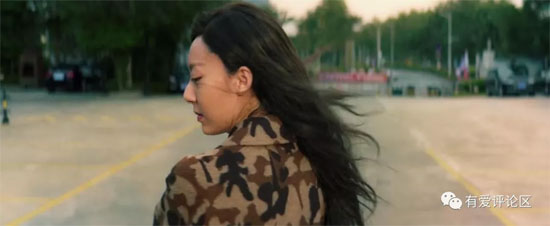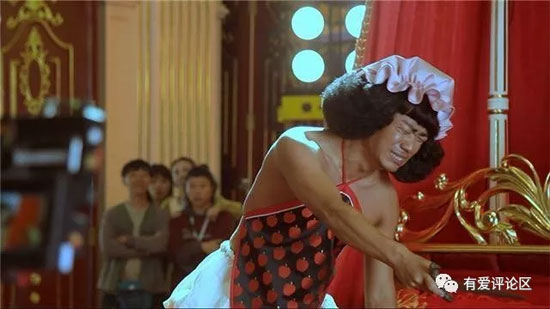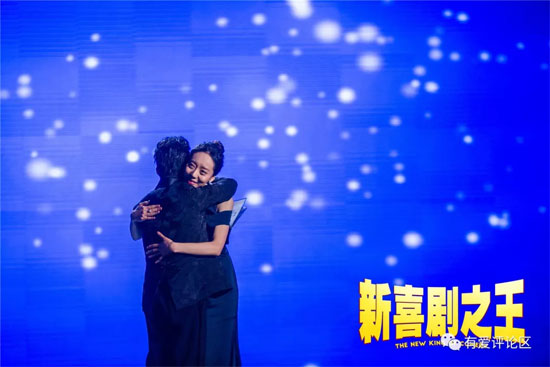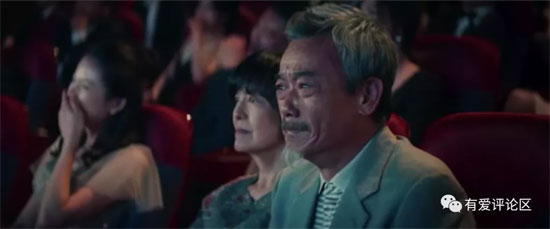Film Name:新喜劇之王 / The New King of Comedy / King of Comedy 2
Let me start by stating my position upfront, so no one accuses me of ulterior motives: “The New King of Comedy” is this year’s Lunar New Year blockbuster with the most polarizing reviews, overwhelmingly negative or mediocre. And I’ll say this: (excluding those malicious, foul-mouthed bashers) you’re all right to criticize it.
Yet I still can’t bring myself to dislike this film, because Stephen Chow has managed to stir up some fresh flavor and substance from what should have been a standard dud.

Truthfully, we should be grateful that over time, various subjective and objective factors have gradually stripped away the “rose-colored glasses” through which we viewed Stephen Chow. Today, we can approach his work with a more grounded, rational perspective.
Stephen Chow is no longer the same Stephen Chow, and neither are we the same people we once were.
[Friendly reminder: Spoilers ahead.]
The New King of Comedy has been widely criticized, with the main issue being its striking similarity to Stephen Chow’s King of Comedy from two decades ago, lacking any freshness.
The protagonists, Ru Meng and Yin Tianchou, share striking similarities beyond their gender. Both have spent years as extras in various film crews, both are constantly treated like rags, punching bags, or invisible air, both fixate solely on their meal boxes, both take acting seriously while clinging to their dreams of stardom… and both are equally delusional and shamelessly persistent.

The New King of Comedy mirrors the original in subject matter and narrative structure, even directly replicating certain gags and punchlines: actors treating “An Actor’s Self-Cultivation” as gospel, stepping on Tian Qiwen’s foot, and having extras switch expressions to convey shifting emotions.
The most blatant homage comes when Rumen and Li Yang reenact the iconic ” King of Comedy”—a self-homage! Nostalgia overload! It sounds plausible at first glance, but upon reflection, it serves little purpose beyond hinting at a doomed romance and padding the runtime.
Thus, accusations of “cashing in on nostalgia” and “rehashing old material” are understandable—harsh words, but not without merit.

Some say this film is purely a cash grab… Truth be told, it is—The New King of Comedy was cobbled together in a month or so. Think back: among all the Spring Festival releases, wasn’t it the only one that seemed to suddenly start shooting, promoting, and slotting its release date?
Compared to Stephen Chow’s earlier films, “The New King of Comedy” lacks special effects, has a lazy script, and even though it’s also based on the lives of struggling actors in Beijing, its production quality falls far short of Er Dongsheng’s “I Am Somebody.” Add in the awkward product placements… One word sums up this film: shoddy.
Moreover, the film has plenty of dealbreakers: Beware if you dislike Wang Baoqiang’s slapstick antics, if you just want a pure comedy, or if you’re sick of toxic motivational clichés—and so on.

Do you believe in fate? You have to. Xiaomi, who shares a dorm with him, never wanted to be a star but gets scouted by a production company at first glance. Marco, an actor past his prime, hits rock bottom with nothing to his name, only to unexpectedly regain fame through comedic short videos—Stephen Chow relentlessly mocks the efforts of ordinary people in the film, sneering at their futility and naivety. “All roads lead to Rome, but some are born in Rome.” That’s reality. But why did they make Ru Meng succeed in the end? Who buys that clumsy feel-good nonsense?
Yet that’s precisely why I love “The New King of Comedy” most. Even when coasting on past glories, Stephen Chow never stopped questioning.
Only today, flipping through the film stills, did I realize: That hat Wang Baoqiang wore while dodging “fans” on the bus—wasn’t that the very same one Stephen Chow wore on set?

When one thinks of Marco acting like a diva and alienating everyone, only to fall into a slump, doesn’t it resemble the “abandoned by all” film set tyrant, Stephen Chow, who now finds himself in a tough spot? If this truly is a seamless act of self-mockery, then Stephen Chow’s artistic realm is truly elevated.
The awkwardness of The New King of Comedy is obvious to anyone with eyes, including Stephen Chow himself. So, after copying the template of The King of Comedy, he made a revolutionary change to its core: love takes a backseat while family bonds take center stage; striving is happiness, effort is success; never give up hope, for it might just come true one day…
Regardless of whether these changes are good or bad, right or wrong, at least in the film’s spiritual essence, “The New King of Comedy” does not repeat its predecessor—it resembles the form but not the spirit.

Suddenly, I recalled Xu Sanduo (Wang Baoqiang)’s line from “Soldiers Sortie”: “I want to be a fool. Fools aren’t afraid of people leaving; fools don’t get hurt.”
Though the contexts are vastly different, I feel the film explores “foolishness” on another dimension—a point at the heart of much controversy surrounding it.
Rumen is a simple, straightforward girl who consistently supports her boyfriend Charlie financially, solely because he has always backed her “acting dream.” It wasn’t until she discovered Charlie’s true identity—a “contract boyfriend” who takes money to say nice things and listen—that she received the final straw that crushed her and made her abandon her dream.

Why keep giving money to someone you know is a fraud? Many viewers likely hit a mental wall here… Yet this precisely captures Rumen’s sudden awakening after over a decade of foolish persistence (PS: E Jingwen, Zhang Quandan, Wang Baoqiang—Stephen Chow truly played an exceptionally cost-effective hand with this cast).
As for the ending: Twenty years ago, Yin Tianchou never became an actor. Twenty years later, Rumen stands triumphant on the award stage—times have truly changed. Back then, many still believed “hard work pays off”; today, those shouting “Work harder! strive!” are often seen as fools. Stephen Chow knows this firsthand. He didn’t believe in fairy tales in the last century, but as the new millennium dawned, he grew increasingly fond of them. This time, he’s gone straight for the fairy tale.
Fairy tales are obviously not real, but those who refuse to believe in them don’t deserve a fairy-tale story of their own.

Before the movie ended, a fan who seemed to be struggling asked her, “Can I become an actress?” Rumen replied with the harshest words possible: “No.” Seeing the girl break down, she immediately added, “Don’t mind what I said. Keep working hard, and you’ll succeed.”
Most viewers dismissed this as cloying, nauseating platitudes, turning away to vent their disgust. Only a few pinched their noses and swallowed it—finding this exaggerated encouragement surprisingly heartwarming compared to life’s own bitterness.
The truth is this: the vast majority of audiences who love “The New King of Comedy” are people who’ve struggled through life’s hardships and felt its pain firsthand. They deeply resonate with the film’s unsparing cruelty and exaggeration, willing to pay for it. How could they possibly criticize Stephen Chow for giving voice to these very emotions?

It’s like at an awards ceremony, before announcing the Best Actress winner, they played a lengthy montage of Ruimeng’s humiliating stints as an extra during her early days. Most people burst into laughter, while some might have felt sympathy for her struggles. Only Ruimeng’s parents were left with tears of heartache.
Please specify:Anime Phone Cases » The New King of Comedy 新喜劇之王 2019 Film Review: Stephen Chow has changed, and so have we